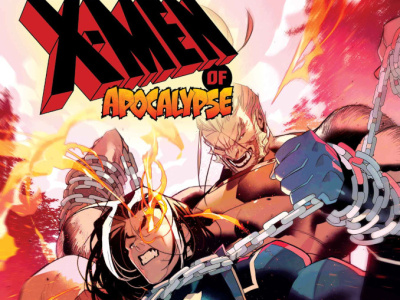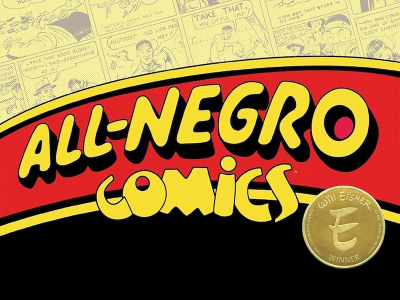Confessions of a Comic Book Guy is a weekly column by retailer Steve Bennett of Mary Alice Wilson's Dark Star Comics in
Last week the Internet was all abuzz with the story of the DC/Zuda deal; the nature of the contracts, whether DC would own the characters etc., and what with me being such a stalwart champion of comics on the Web my silence on the subject might have seemed strange. But mostly it was due to the fact (a) Webcomics aren't the same as comics on the Web, (b) I didn't think I had anything original to say about it and (c) frankly, I didn't think it had much to do with us.
Then on July 17th Tim Cavanaugh wrote a fairly depressing (although altogether too accurate) article on of the state of the comic book industry for The L.A. Times. It covered a number of topics but while addressing Zuda it quoted Tom Spurgeon of ComicsReporter.com.
'Will companies be able to translate what up until now has been a few fluke hits into a consistent revenue source?' asks Spurgeon. 'Is paying a bunch of people sitting at home in their underwear a page rate to draw cartoons really the best way to find the next Harry Potter or Simpsons or Spider-Man? It's classic big-company paranoia that they somehow might be cut out of the next pie without looking to see what the next pie looks like or how big it is.'
Now I'll happily admit I'm no expert when it comes to Webcomics. I've read PVP and Megatokyo, but that's pretty much it. But I do have three lovely goddaughters in their early 20s. Over the years I've done my best to interest them in comics and finally succeeded with manga which led them to become anime fiends and hard-core gamers (console and otherwise; recently one of them got into H.P. Lovecraft thanks to an RPG). And while they'll greedily gobble up the latest installment of Buffy Season Eight, they draw the line when it comes to superhero or horror comics. But when I visit them and use their computers to check my e-mail I find bookmarks for Webcomics I've never heard of.
And while I know I can't extrapolate a popular trend based on anecdotal evidence, I've met enough twentysomethings via Dark Star to know my girls are far from unique. I don't know but severely suspect there's an entire generation of comic readers already out there who've found material that reflects their lives and interests. I imagine that's why most of the Webcomics I've come across are nerd-centric sit-com/soap opera hybrids with optional manga/SF/fantasy elements (like Diesel Sweeties, the Webcomic that graduated to a newspaper comic strip).
That's Webcomics the genre but there's also Webcomics the format, which appears to be either a standard four panel comic strip grid or one page at a time, the perfect size and shape to fit on cell phones or other electric devices. I'm guessing this is why DC decided to invest in the Japanese publisher Flex Comix, a company which, according to a press release, 'will create original manga titles that will be distributed digitally across the Web and on mobile phones.'
I certainly don't know 'what the next pie looks like or how big it is,' but there's definitely going to be another pie, and it's not like DC is spending an exorbitant amount of money to find out. As I keep saying (and saying), the direct sales market is a closed and perpetually shrinking system and its major product, the superhero comic book, appeals to fewer and fewer readers. So DC has every reason to be 'paranoid;' the only rational thing for a publisher to do under these circumstances is try to create material that will appeal to a larger audience, like Minx and Zuda.
Zuda downplayed its publishing plans in the initial announcement, but it's clear that at least part of the reason behind its creation is for the comics to later be collected and sold in major chain book stores. Because when I made one of my infrequent inspection tours of what I like to call the Barnes & Borders mega-stores, I found a Borders that had over four full shelves of manga... and not one single American graphic novel.
I hear of lot of people downplaying the whole idea of reading comics either on the Web or their cell phones, talking about the innate superiority of print comics, etc. This position tends to ignore the obvious; nobody is asking us to read comics this way. Another one of the direct sales market's major problems is the graying of the audience. I'm afraid most of us (I just turned 48) are entirely too old to adapt to a new way of reading comics, but then we're not the audience publishers (and advertisers) are looking for.
They're looking for twentysomething early adopters of new technologies, like, my goddaughters. And as to whether Webcomics is the new television or just a flashy fad, I have no idea. But we're about to find out.
The opinions expressed in this column is solely those of the writer, and do not necessarily reflect the views of the editorial staff of ICv2.com.







